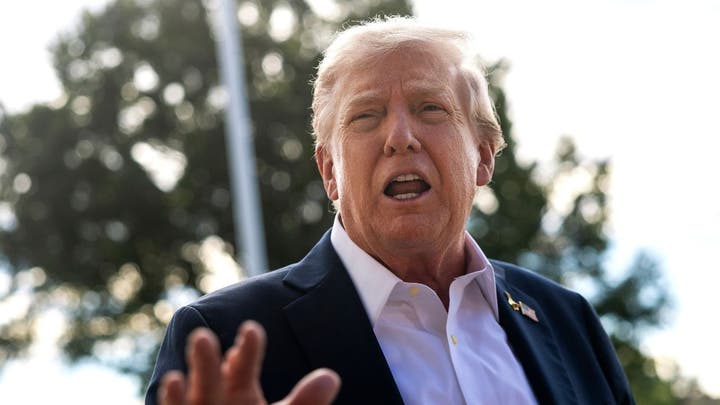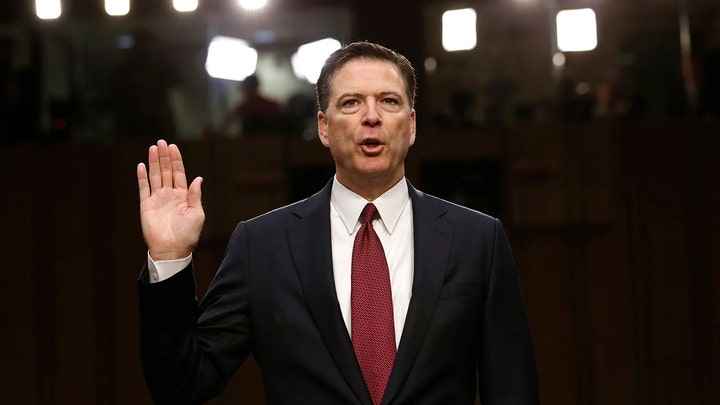Trump Responds: Is James Comey’s Indictment About Justice or Revenge?
Donald Trump reacts to James Comey’s indictment with fiery claims of vindication. Is this long-awaited justice or a dangerous act of political revenge?
Introduction
Few names have echoed through American political discourse as persistently as Donald J. Trump and James B. Comey. Their turbulent relationship — defined by clashes over loyalty, investigations, and credibility — has been a defining subplot in modern U.S. political history. Now, with the indictment of former FBI Director James Comey, the narrative has taken yet another dramatic turn. Trump’s response, delivered in typical fashion with equal measures of confidence and controversy, has reignited debate over whether this moment represents long-delayed justice or thinly disguised political revenge.
This article takes an in-depth look at the latest developments, Trump’s response, Comey’s indictment, and the broader implications for American democracy.
The Background: Trump and Comey’s Tumultuous History
To understand why Trump’s response carries such weight, it’s necessary to revisit the history between the two men.
Comey’s Rise: James Comey, a career prosecutor and law enforcement official, was appointed FBI Director by President Barack Obama in 2013. His reputation for independence and his willingness to stand up to political leaders — including George W. Bush’s administration over surveillance issues — earned him bipartisan respect at the time.
2016 Election Firestorm: Comey became a central figure during the 2016 presidential race. His announcement of an FBI investigation into Hillary Clinton’s use of a private email server, followed by a public statement clearing her of criminal wrongdoing, stirred controversy. Trump seized on Comey’s criticism of Clinton to bolster his campaign, though Democrats accused Comey of sabotaging her chances.
The Trump Presidency: Once Trump entered the White House, the relationship unraveled quickly. Comey confirmed that the FBI was investigating potential ties between Trump’s campaign and Russian operatives. According to Comey, Trump pressed him for “loyalty” and suggested he “let go” of investigating Michael Flynn, the national security adviser.
The Firing: In May 2017, Trump abruptly fired Comey. The decision shocked Washington and triggered the appointment of Special Counsel Robert Mueller, who investigated Trump for obstruction of justice.
This fraught history casts a long shadow over Comey’s current legal troubles and Trump’s reaction to them.
The Indictment: What We Know
While the full details of the indictment against Comey are still unfolding, prosecutors have reportedly charged him with misuse of classified information and violation of internal protocols regarding the handling of FBI documents. These charges echo earlier controversies about memos Comey kept detailing his conversations with Trump, some of which were later leaked to the press through an intermediary.
Supporters of the indictment argue that no one — not even the FBI Director — is above the law, and mishandling sensitive information must have consequences. Critics, however, claim the indictment is selective justice, designed to punish a Trump adversary years after the fact.

Trump’s Response: Victory, Vindication, or Vengeance?
In his public statements, Trump wasted no time framing Comey’s indictment as proof of his own long-standing claims. “This is the justice America has been waiting for,” Trump declared at a rally. “Comey was corrupt, he was dishonest, and he tried to take down your president. Now the tables have turned.”
On social media, Trump amplified his response with characteristic bombast:
- He called the indictment “the biggest step toward restoring honesty in government.”
- He repeated his claim that Comey “illegally spied” on his campaign.
- He suggested that other former officials, including those involved in the Russia investigation, should “be next.”
Trump’s supporters view his response as vindication after years of what they describe as a “witch hunt.” His critics, however, see it as gleeful revenge — a dangerous precedent of using prosecutions to settle political scores.
Conclusion: Justice or Revenge?
Trump’s response to James Comey’s indictment has crystallized the enduring tension in American politics: the struggle to distinguish legitimate accountability from partisan retribution. For Trump and his supporters, the indictment represents long-delayed justice — a chance to prove that Comey and others abused their power. For critics, it reeks of vengeance, weaponizing the justice system to settle old scores.
Ultimately, whether history remembers this as justice or revenge will depend not just on the courtroom outcome but on how Americans themselves interpret it. The Comey indictment may close one chapter of the Trump-Comey saga, but it also opens a deeper question about the health of American democracy: Can the nation still separate justice from politics, or has the line been erased for good?


